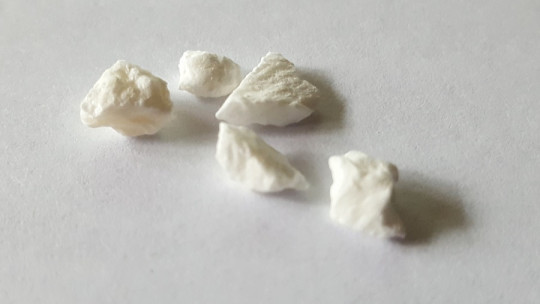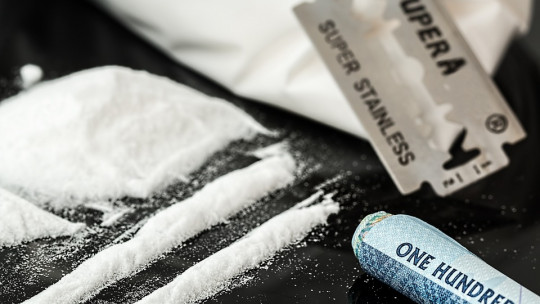Cocaine is among the most consumed illegal drugs globally, and unlike many, its use is relatively normalized in all social classes. Therefore, cocaine addiction is one of the most common in the world.
But because it is popular, it is no less dangerous as a psychoactive substance. The truth is that the capacity of this drug to erode the consumer’s quality of life is notable, and its effects of accumulated damage are noticeable in a relatively short time, contrary to what many people believe. Thus, knowing how to identify the warning signs of cocaine is essential In this article we will see what they are, and what to do about this disorder.
Warning signs associated with cocaine addiction
In order to facilitate the identification of this health problem in anyone, below we will explain what the typical signs and symptoms of cocaine addiction are.
1. Short-term physiological and psychological symptoms
In this section Above all, we will see what are the physiological and psychological phenomena that appear minutes after having consumed , although it is normal for them to disappear in a matter of hours (although it is possible that the person consumes it several times throughout the day, causing relatively large quantities of this substance to exist in their blood for a prolonged period). Knowing them serves to be aware of the extent to which the person in question uses this drug often or not.
1.1. Short-term physiological symptoms
The physical signs caused by cocaine are usually the most obvious and easy to identify in any person. The main ones include an increase in heart rate, which can cause tachycardia and an increase in body temperature
The person’s nervousness can also be identified, as well as noticeable restlessness or overexcitement, often manifested by repetitive movement of the legs or other parts of the body.
In addition to that, dilated pupils are also another physical symptom that is easy to detect by an outside observer.
1.2. Short-term psychological symptoms
Euphoria is another of the classic characteristics linked to cocaine use and one of the most identifiable effects in the person who consumes it.
It is a feeling of general well-being both intellectually and physically, which pushes the person to perform acts that they would not do under normal conditions. Therefore, it is similar to what is known as hypomania in cases of bipolar disorder: the person acts from an unreasonable optimism about his own abilities, and overestimates his chances of succeeding in anything he sets his mind to.
Many times, this state of artificial euphoria also causes excessive verbosity in the person, which translates into long monologues on the part of the addict.
2. Loss of appetite
The neural circuits in charge of controlling appetite lose their activation when the person suffers from a cocaine addiction, since These neurons are completely dedicated to the task of rewarding (through pleasant sensations and the cessation of discomfort due to withdrawal) for the experience of drug consumption
This phenomenon occurs in many other drugs, and entails a process of deterioration, weight loss and susceptibility to illness in cocaine addicts. However, it must be taken into account that this is a long-term effect and has accumulated effects over weeks and months; In the minutes following consumption, many people may feel very hungry and binge.
3. Alterations in self-perception
Some direct consequences of this euphoria are the perception of an increase in one’s physical or intellectual abilities and a sense of general superiority which influences the person to carry out all kinds of crazy behaviors even when they have not been using for several hours or days.
In addition to that, cocaine addicts also completely lose the feeling of pain, tiredness or fatigue.
Due to this, it is not uncommon to see that professionals from very competitive environments always accept more workload since they expect to be able to do everything because they assume that cocaine will give them that “extra” energy, this being illusory (given that the evil use of the body’s resources continues to occur, although as much discomfort is not experienced immediately).
4. Insomnia
Problems when trying to fall asleep due to the effect of the drug, which is a stimulant substance and as a subsequent activator of the nervous system, it is another aspect to consider.
This is a direct consequence of the effects of the drug on the brain, which can also cause other health problems such as headaches, general malaise and greater exposure to anxiety disorders (something enhanced both by the drug itself and due to lack of sleep).
5. Radical changes in lifestyle
There are many changes at a personal, social or work level that occur in the life of a cocaine addict during the course of their addiction.
The most notable are a deterioration in family or friendship relationships , a loss of interest in occupations or activities that previously interested the person and a change in nightlife habits, with departures and arrivals home that, depending on the family context, are often hidden. In the long run, there is also a drastic decline in academic, school or work performance, even if the stimulant effects of cocaine and its impact on the ability to work were one of the reasons the person started using it in the first place. .
In addition to that, an increase in the addict’s daily or weekly expenses is also common, since cocaine is one of the most expensive drugs that exist.
6. Mood changes
Finally, among the classic signs that a person addicted to cocaine presents, the following stand out: frequent mood swings, irritability in the face of setbacks anxiety when not using or depression.
These emotional symptoms may be a consequence of some of the signs mentioned above, or they may also be the cause of some of them.
@professional(2057095, “Are you looking for addiction treatment?”)
What is the treatment like?
The treatment of cocaine addiction must be given in two ways: medical-psychiatric and psychotherapeutic Both work by combining each other to not only make the effects that the drug has had on the body fade away, but also so that the person learns to be autonomous again and learns to better regulate their own emotions and behavioral patterns. thus avoiding relapses and better dealing with the initial discomfort due to withdrawal.
Regarding medical treatment, The initial phase of treatment is especially important , in which the patient’s body eliminates the remains of the drug that were stored in the blood and tissues, and the person is prevented from falling into harmful behaviors in order to alleviate the discomfort of the first days. Psychiatric support will continue throughout the process, providing professional support in the face of the challenge of living without continuing to use and offering tools to face the possible anxiety that may arise due to this.
Psychotherapy also helps the person know how to manage negative emotions related to drug withdrawal, but beyond this, it allows the patient to learn to find new sources of motivation, effective ways to detect in time the thoughts and behaviors that may predispose them to relapse, and ways to relate to others. others to keep him away from drugs. To do this, it uses very diverse techniques and strategies, such as Mindfulness, the use of self-records, etc.
Are you looking for therapeutic support for addictions?
If you are looking for treatment for an addiction problem, contact our team. In Llaurant la Llum We have both a complete team of medical and psychotherapy professionals and complete facilities for outpatient or residential treatment.









